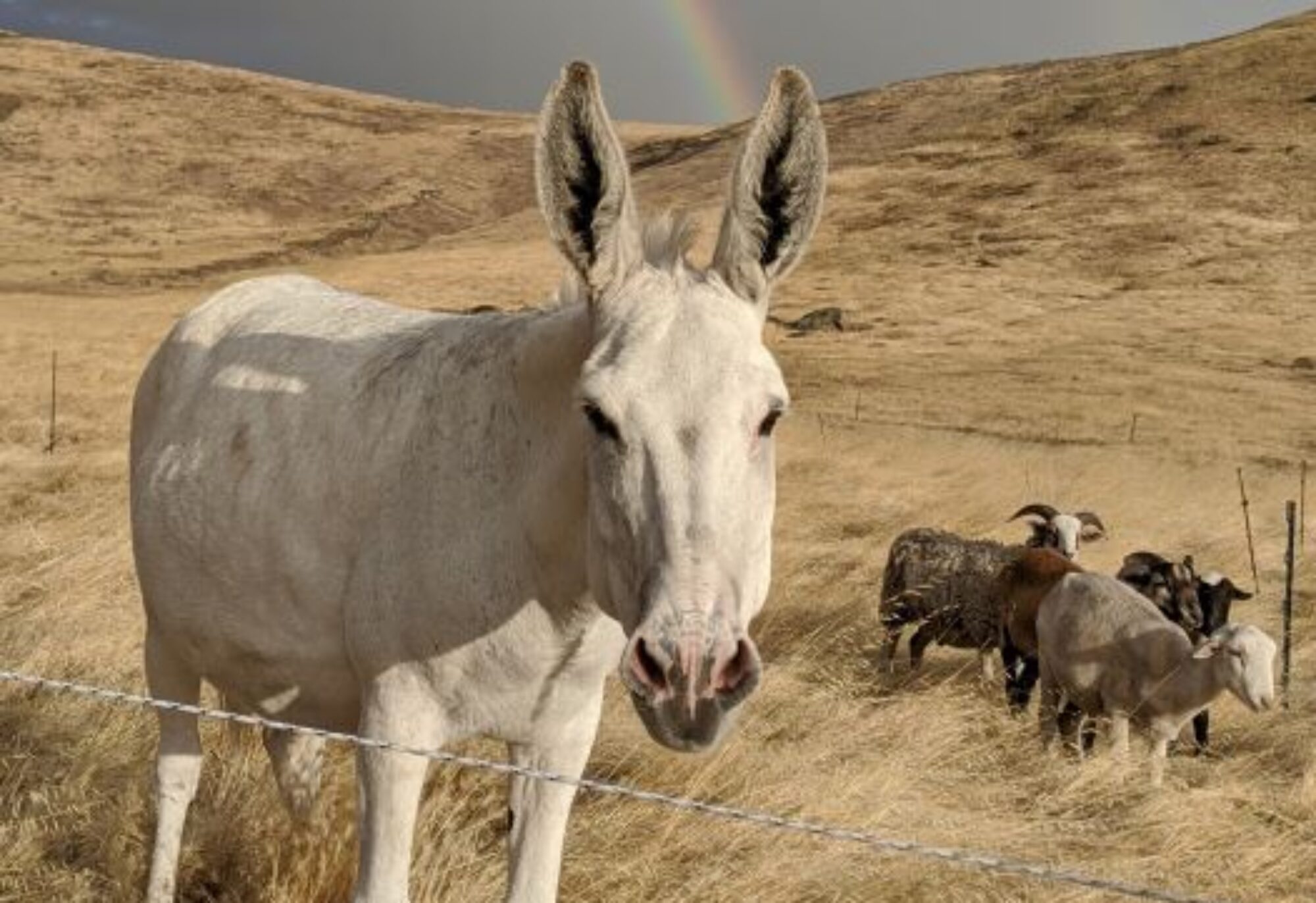Reyna is our guardian donkey. Her name means “wise guardian” and “queen”. She is fierce and will stomp and kick anything that tries to hurt her sheep. Her hooves and teeth are much scarier to predators than a guard dog and are a very important asset to our pasture renewal. She is also gorgeous, sweet, affectionate to people and adores attention.
Jack is her sweet son who is learning how to guard from his mom. He’s already shown his ability to protect his own ram flock! He rounds up the sheep in a tight circle, and then he faces off the threat. He loves his big soft ears scratched.



Our sheep flock is comprised of mostly Dorper and some Katahdin sheep. At first, we only had a few rams (daddy sheep) out with the donkeys while we got to watch how the land reacted to different ways of grazing. We now have a ewe (mama sheep) flock with lots of baby lambs! Everywhere they put their hooves last year, more diverse plant life popped up this winter.
Here is Jack learning to guard as a baby donkey.

We used to raise Red Ranger chickens (pictured). This breed grows slower than most commercial chicken allowing them to develop properly. However, the extra time does add to the cost which has proven to be more than the market is willing to pay. This has led us to transition to the standard broiler chicken, the Cornish Cross. They still scratch and peck a lot, getting plenty of exercise eating plants and bugs, which produces a much healthier chicken. Their scratching and pooing also makes the ground healthier to grow more plants and retain more water! Guess in the picture below where the chicken tractor path travelled last year. Reyna, Jack, and the sheep were very pleased.
All the animals get moved on a regular basis. This has many benefits to both the animals and the land, including giving them fresh, non-soiled forage while distributing their natural fertilizer evenly along the ground. The difference of this rotational grazing method can be seen clearly in the picture below.

If you’d like to talk more about our animals or our animal management, please use the Contact Us page to start a conversation.










